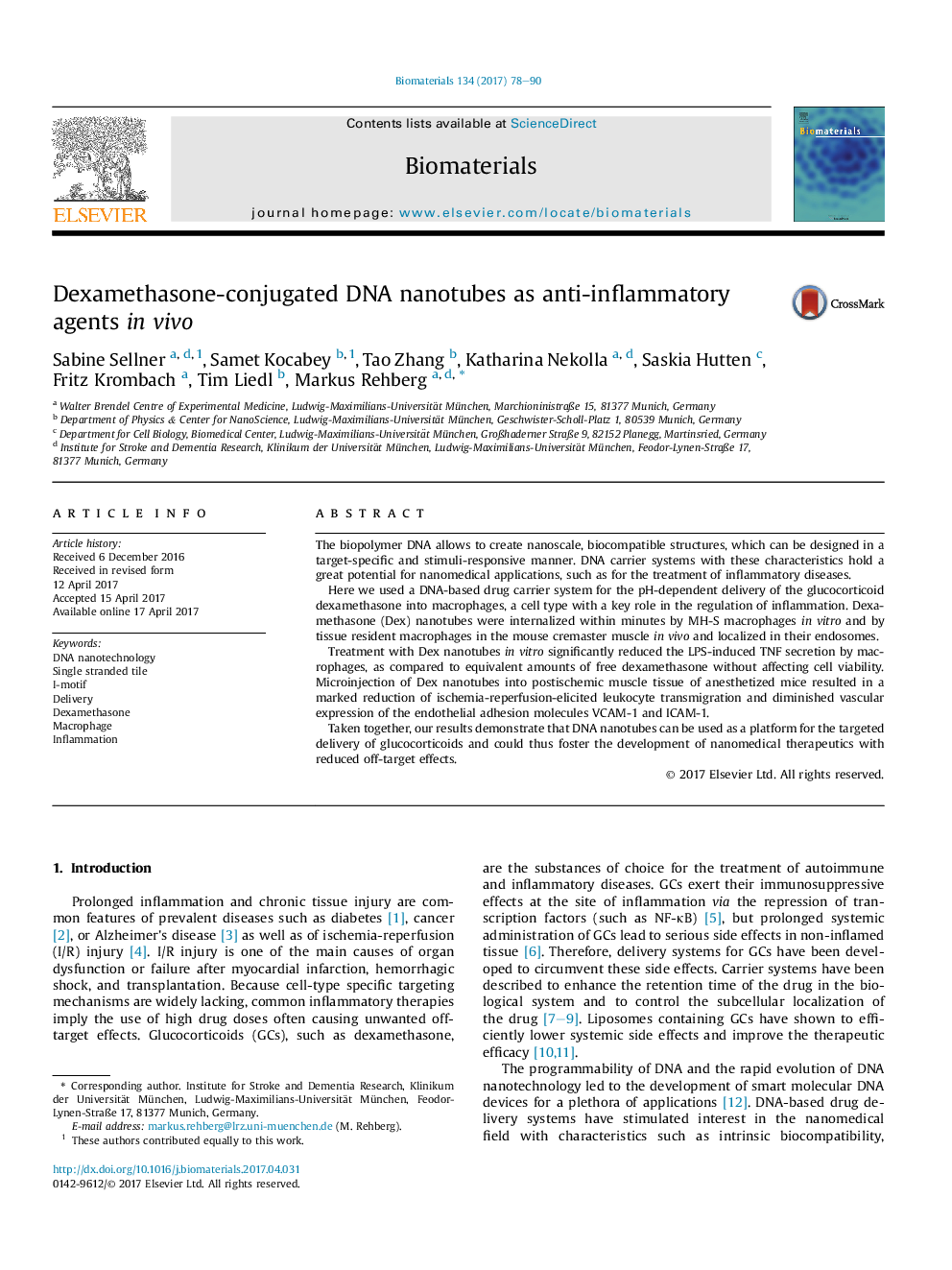| Article ID | Journal | Published Year | Pages | File Type |
|---|---|---|---|---|
| 4752335 | Biomaterials | 2017 | 13 Pages |
The biopolymer DNA allows to create nanoscale, biocompatible structures, which can be designed in a target-specific and stimuli-responsive manner. DNA carrier systems with these characteristics hold a great potential for nanomedical applications, such as for the treatment of inflammatory diseases.Here we used a DNA-based drug carrier system for the pH-dependent delivery of the glucocorticoid dexamethasone into macrophages, a cell type with a key role in the regulation of inflammation. Dexamethasone (Dex) nanotubes were internalized within minutes by MH-S macrophages in vitro and by tissue resident macrophages in the mouse cremaster muscle in vivo and localized in their endosomes.Treatment with Dex nanotubes in vitro significantly reduced the LPS-induced TNF secretion by macrophages, as compared to equivalent amounts of free dexamethasone without affecting cell viability. Microinjection of Dex nanotubes into postischemic muscle tissue of anesthetized mice resulted in a marked reduction of ischemia-reperfusion-elicited leukocyte transmigration and diminished vascular expression of the endothelial adhesion molecules VCAM-1 and ICAM-1.Taken together, our results demonstrate that DNA nanotubes can be used as a platform for the targeted delivery of glucocorticoids and could thus foster the development of nanomedical therapeutics with reduced off-target effects.
